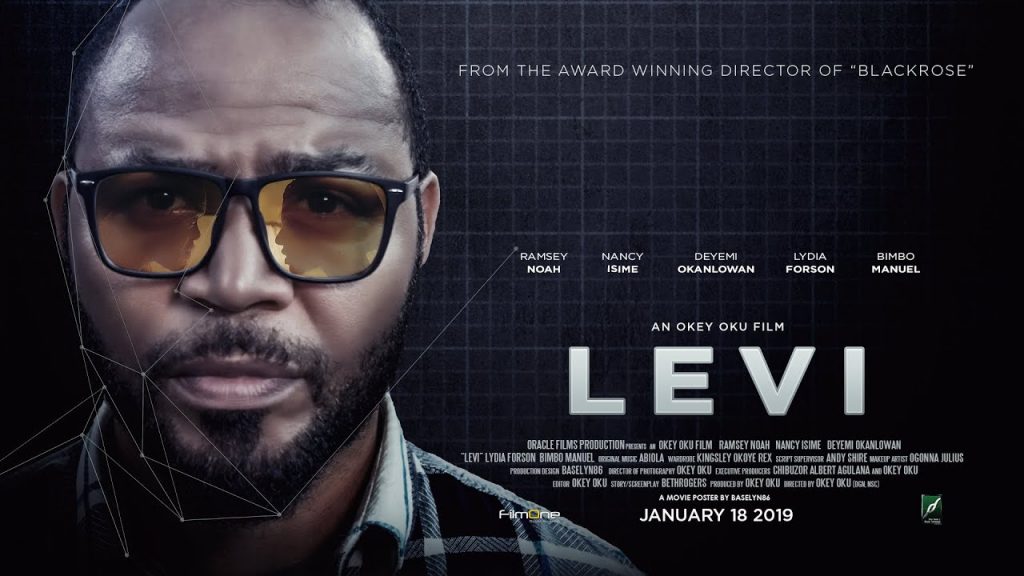“Who’s The Boss” is Accelerate TV’s first feature film, and it is in collaboration with Inkblot Productions. Unlike other players in its space – Ndani TV and RED TV – who are becoming acclaimed for web series, Accelerate TV has been more focused on film through its Accelerate Filmmaker Project.
With March designated Women’s Month, how apt for “Who’s The Boss” to have been released on 28 February? However, the story is not about gender parity, but it is centred around female empowerment. Regrettably, despite the strong premise, the subplots and characterisation did not allow the movie crystallise into a compelling story.
“Who’s The Boss” is based on a phenomenon Nigerian working-class women identify as the PHD syndrome. PHD is an acronym for “Pull her down.” It’s something Hauwa Sowole (Funke Akindele-Bello) is notorious for. Hauwa is an advertising executive who works at Apex Communications. She has a young and brilliant assistant in Liah (Sharon Ooja).
Liah is a goody-two-shoes from a lowly background who has worked for all she has. She does not want much. Liah has been Hauwa’s assistant for two years and believes it is time she got into the core business. Her dream is to fill the vacant senior creative executive position.
Meanwhile, Liah’s flatmate and bestie is Jumoke (Ini Dinma-Okojie). Jumoke is a wealthy doctor whose family wealth is being questioned. But Jumoke has another best friend. His name is Lekan (Blossom Chukwujekwu). Jumoke and Lekan have been friends since she was six years old. Lekan is a tech entrepreneur cum thespian. Their relationship is hard to fathom. It is a platonic love almost like a bromance.

Over time, Apex Communications has bagged several of the most sought after clients in the fast moving consumer goods (FMCG) and telecommunications sectors. With big advertisers, the ideas bank must never run dry. But it would seem that after 15 years of working at Apex Communications, Hauwa had lost her creative juices and became heavily dependent on Liah. Yet, she would not give the young lady any credit. Hauwa continually “pulled her down” perhaps because she felt threatened by Liah’s intelligence.
As such, Hauwa tells Liah she is not experienced enough for the senior creative executive role. But she doesn’t stop there. She tells her boss, Tunde Esan (Segun Arinze) – the head of the advertising agency – that Liah is not ready for the role. And rather than a promotion, Hauwa loans Liah to Tunde for a few months to work as his assistant.
After Liah laments her ordeal to Jumoke, she advises Liah to float her own advertising agency. Aniyah is born and Liah begins moonlighting until things get complicated. The advertising industry is small after all, and Liah’s cover is almost blown. So, Jumoke convinces Lekan to become the face of Aniyah.
Chinasa Onuzo, the screenwriter’s writing credits include “The Wedding Party 2,” “The Arbitration” and “The Set Up.” But it seems that as a writer, Onuzo is a hit-and-miss. The prominence of Lekan’s larger-than-life character overshadowed the underlying message of the film. The relationships are distracting. And Jumoke’s underdeveloped backstory does not do much for the story either. In the end, Liah’s struggles do not strike a chord. Rather, “Who’s The Boss” felt unduly long, windy and bland.
Onuzo also takes the director’s seat for the first time. He relies heavily on product placements for his film. It’s in your face. But one must admit that it is the best advertising Cars45 has ever had.
Speaking of advertising, from Toyin Abraham playing an advertising executive in “Okafor’s Law” to Swanky JKA in “Living in Bondage: Breaking Free,” that’s one sector Nollywood filmmakers seem to favour for corporate settings. Yet after so many years they still do not get the processes and lingo right. For one, Hauwa and Tunde kept referring to the “contract.” Whereas in reality, advertising folks say they ‘don’t want to lose the client.’ And how unrealistic for Liah to be a one-man team? In reality if she were the creative person, she would require an artist at the very least. But the more notable flaw was with the pitch process. No client announces the results of a pitch right after the presentation.




